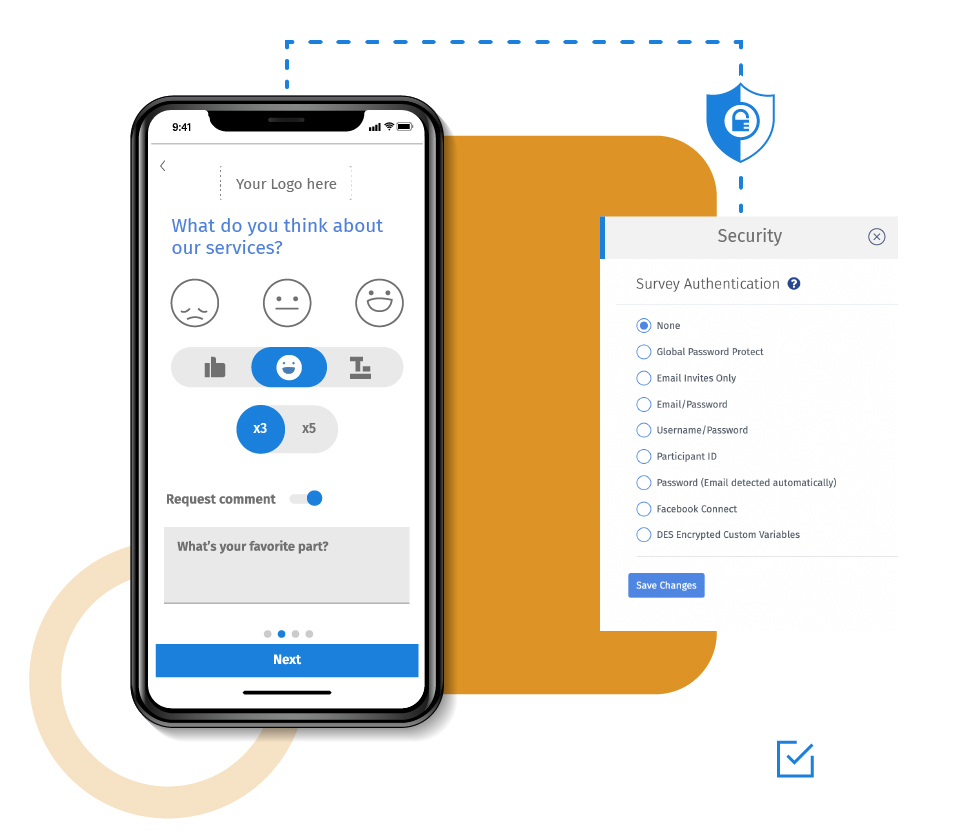Sometimes, researchers need to collect supporting and identification data like location, device type, operating system, etc. along with the responses. Such data can be stored in custom variables and used to define the path of the survey. They are passed along with the survey URL. Researchers can also filter responses based on the custom variables.
Why does it affect your research?
QuestionPro uses the DES algorithm to encrypt custom variables passed along with the survey URL. They are decrypted and saved as part of the response.
You'll need to enter an eight-character key that will be used to encrypt and decrypt the custom variables.
DES method uses a 56-bit key to encrypt the data. So, there can be 2^56 possibilities of keys. It would take a very long time to find the correct key using a brute-force attack.
For more details and to learn how to set up this feature, refer our help file on DES encryption.
Survey Software Easy to use and accessible for everyone. Design, send and analyze online surveys.
Research Suite A suite of enterprise-grade research tools for market research professionals.
Customer Experience Experiences change the world. Deliver the best with our CX management software.
Employee Experience Create the best employee experience and act on real-time data from end to end.





